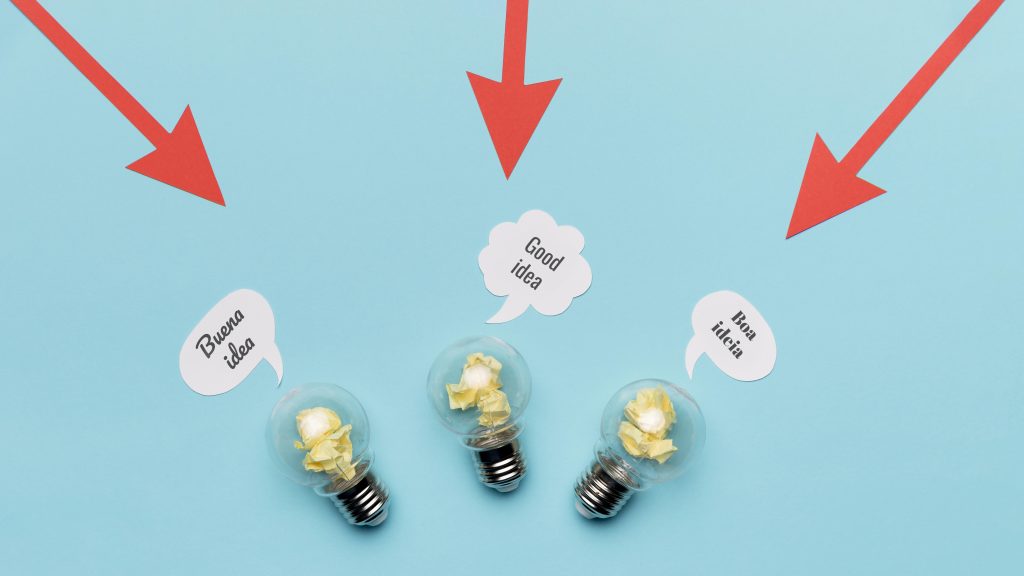Why Ambiguity Makes You Smarter
Jessica White July 23, 2025
In today’s world, we often try to avoid ambiguity. We like clear answers, structured paths, and certainty. But recent research shows that ambiguity can actually be beneficial. It promotes critical thinking, creativity, and adaptability, all essential qualities in today’s fast-paced world.
In this article, we’ll explore how embracing ambiguity can make you smarter and help you become better at solving problems, making decisions, and thinking creatively.

Ambiguity and Critical Thinking
Ambiguity forces us to think critically. When faced with unclear or contradictory information, we must ask questions, analyze evidence, and evaluate different perspectives. This enhances our critical thinking skills.
In complex situations, ambiguity requires us to dig deeper. We’re not just accepting surface-level answers. Instead, we examine the situation from all angles and consider possible solutions. This process strengthens our ability to think analytically and solve problems.
Studies in cognitive psychology support this. For instance, research in Psychological Science shows that people who thrive in uncertain situations tend to have better cognitive flexibility. They approach problems more creatively and develop solutions that others might miss.
Creativity Flourishes in Ambiguity
Creativity often emerges from uncertainty. When the outcome isn’t clear, we’re more likely to think outside the box. Ambiguity removes the rigid structure and allows our minds to explore new possibilities.
Creative problem-solving happens when we have the freedom to experiment, fail, and try again. Think of artists, scientists, and entrepreneurs—they often begin with vague ideas and allow them to evolve. This process would not be possible if they were constrained by too much structure or certainty.
For example, in product design, ambiguity often leads to innovative breakthroughs. Teams experiment with multiple prototypes, each iteration revealing new possibilities. Without ambiguity, many of the world’s most successful innovations might never have been discovered.
Ambiguity Enhances Cognitive Flexibility
Cognitive flexibility is our ability to adapt our thinking when faced with new or unexpected situations. Ambiguity helps develop this skill by forcing us to adjust our thought processes. When the path is unclear, we must adapt and find new ways to approach the problem.
The ability to shift between different concepts and perspectives is crucial in fast-paced environments. A study in Cognitive Science found that people who are comfortable with ambiguity are better equipped to make decisions in uncertain circumstances. They don’t rely on rigid patterns of thinking but instead adjust to the demands of the situation.
In workplaces where innovation is essential, ambiguity allows employees to think creatively, adapt to change, and innovate. When people can’t predict everything with certainty, they are more likely to come up with new ideas and solutions.
Embracing Ambiguity in Education
Educational systems that expose students to ambiguity tend to foster deeper learning and problem-solving skills. When students are faced with complex, ambiguous problems, they engage in critical thinking and develop stronger cognitive abilities. In contrast, problems with a single right answer don’t always challenge students to think creatively.
For instance, in project-based learning, students work on open-ended tasks that require them to solve problems with no clear solution. This ambiguity encourages them to ask questions, collaborate, and experiment with different approaches, resulting in a deeper understanding of the material.
Research shows that students who are comfortable with ambiguity tend to perform better academically and are more adaptable in real-world situations. They’re more prepared to face challenges, think critically, and navigate the unknown.
How Ambiguity Affects Decision Making
In decision-making, embracing ambiguity can lead to better outcomes. When we encounter uncertainty, we often focus on finding the “right” answer. But sometimes, the best decisions come from understanding that there isn’t always one correct choice.
Ambiguous situations require us to weigh various options and consider multiple factors. This makes us more thoughtful and reflective in our decision-making process. We analyze the risks, benefits, and potential outcomes before making a decision.
People who are comfortable with ambiguity are also better at managing uncertainty. They don’t get paralyzed by the unknown but instead use it as an opportunity to explore new options. This ability is crucial in areas like business strategy, policy-making, and innovation.
Embracing Ambiguity in Everyday Life
On a personal level, embracing ambiguity can help us grow emotionally and intellectually. Life is inherently uncertain, and learning to navigate ambiguity can build resilience and self-confidence.
For example, when faced with major life decisions—like a career change, relationship challenges, or moving to a new city—those who embrace ambiguity approach the situation with curiosity and an open mind. Instead of feeling overwhelmed, they view the uncertainty as an opportunity for growth and new experiences.
Living with ambiguity also reduces stress and anxiety. By accepting uncertainty, we can focus on the process rather than obsessing over perfect outcomes. This shift in perspective leads to greater mental well-being and a more fulfilling life.
The Role of Ambiguity in Personal Growth
Personal development often requires us to step outside our comfort zone and embrace uncertainty. Whether it’s learning a new skill, trying something unfamiliar, or facing a challenge, personal growth is fueled by our ability to cope with ambiguity.
For example, traveling to a new country forces us to navigate unfamiliar situations, understand different cultures, and solve problems on the fly. These experiences challenge us to think differently and expand our worldview. The uncertainty of travel can make us more adaptable, resilient, and open-minded.
By embracing ambiguity in our personal lives, we develop greater emotional intelligence and flexibility. This makes it easier to cope with life’s inevitable uncertainties and come out stronger on the other side.
Conclusion
Rather than avoiding ambiguity, we should embrace it as a powerful tool for growth, learning, and creativity. Ambiguity forces us to think more deeply, challenge our assumptions, and consider new possibilities. It’s through uncertainty that we discover innovative solutions, develop critical thinking skills, and make better decisions.
In education, the workplace, and personal development, ambiguity is a key driver of innovation and adaptability. By learning to thrive in uncertain environments, we can enhance our cognitive flexibility, creativity, and resilience.
So, the next time you find yourself faced with ambiguity, don’t shy away from it. Embrace the uncertainty and see where it takes you. You may just discover that the best ideas come from the most ambiguous places.
Reference
- The Power of Ambiguity, https://www.psychologytoday.com
- Ambiguity Builds Cognitive Flexibility and Critical Thinking, https://psychologicalscience.ir
- Knowing When to Embrace Ambiguity and When to Fear It, https://www.pmi.org







